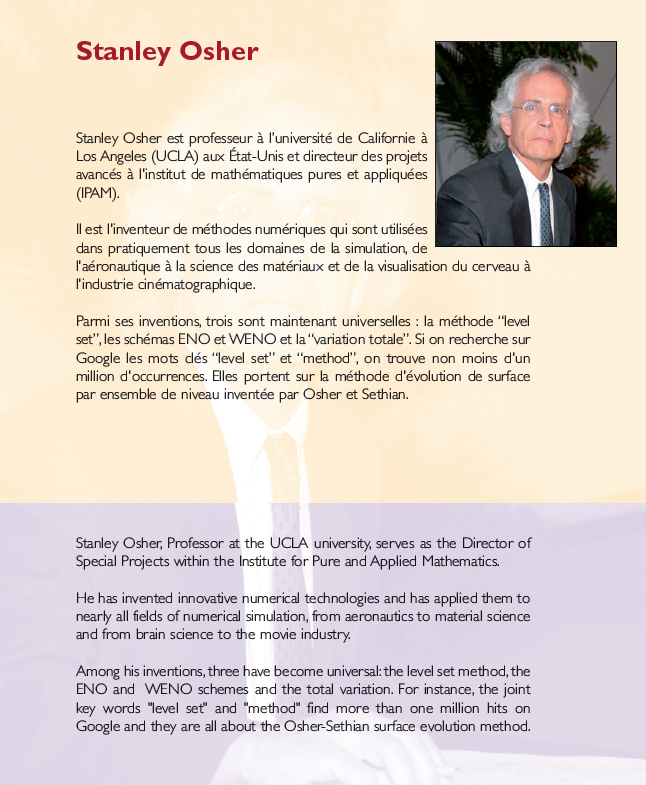LSS founder receives Docteur Honoris Causa from ENS Cachan, France.

Honors
Madame la Directrice, dear colleagues, dear students, ladies and gentlemen,
Stanley Osher is Professor at the University of California at Los Angeles. His discipline is numerical analysis and he has contributed to reshape this discipline.
Professor Osher’s bibliography contains almost 200 papers. Summarizing them in less than 15 minutes is really not such an impossible task. Indeed, while Stanley Osher has dealt with just one problem, it just happens that this problem is actually the main problem of numerical analysis:
That is : how to represent, with a computer, continuous and infinitely accurate phenomena?
This problem has been a central concern for many mathematicians ever since computers were invented. The English mathematician Alan Turing, who invented computers, didn’t exactly glorify computers. His model, the Universal Machine, is just a bit smarter than a typewriter. As you know, the computer obeys a finite and fixed set of instructions. The computer obediently reads sequences of bits. The computer obediently writes sequences of bits. That’s all. The computer is just a reliable “bean counter”.
All the same, Alan Turing, who is also the founder of artificial intelligence, planned in 1956 to simulate all natural phenomena with computers. Alan Turing was the first to write the partial differential equations modelling pattern formation in biology. And he was also the first to try them on a computer.